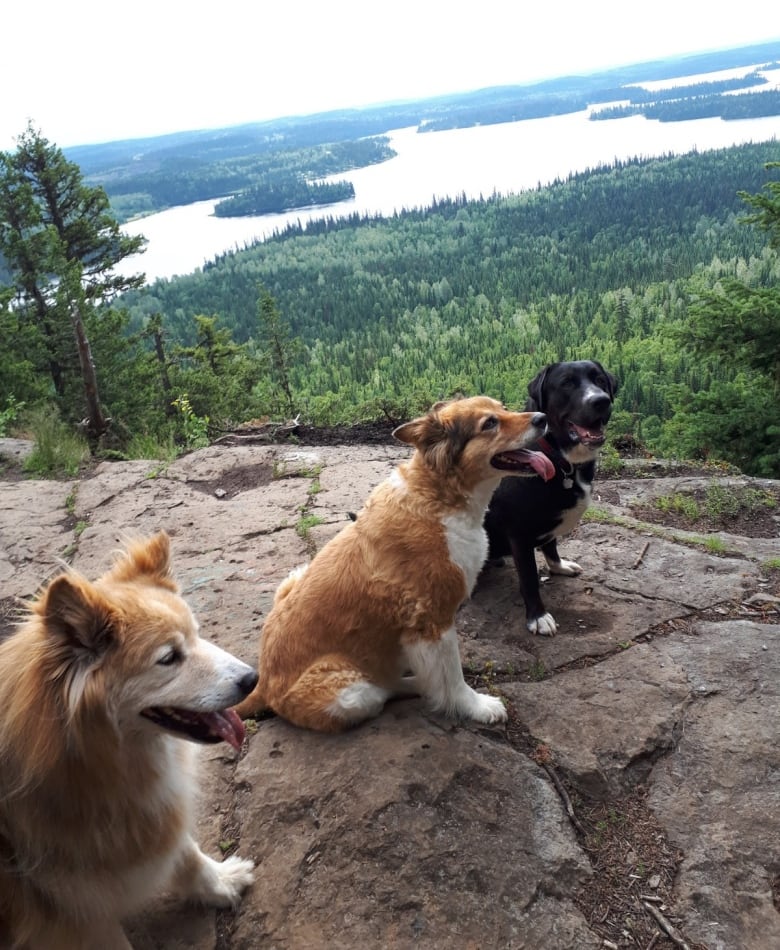Northern B.C. lake being considered as site for plastics plant, sparking concern among residents, First Nation
West Coast Olefins pulled plans for site in Prince George plant after backlash over air pollution

A lake in northern B.C. is being considered as a site for a new petrochemical plant, raising concerns among residents and a First Nation in the rural area.
West Coast Olefins initially planned to build a $5.6-billion plastic manufacturing facility in Prince George's industrial area, which the company said would create 1,000 permanent jobs. But the idea was scrapped after backlash from locals concerned about air pollution.
Instead, the company has announced plans to relocate the facility to a rural area north of the city.
West Coast Olefins is considering five possible sites, including Summit Lake, 50 kilometres north of Prince George.
Surrounded by forest and 12 kilometres long, Summit Lake is on the continental divide, and drains into both the Pacific and Arctic oceans.
The fact that it's been earmarked as a site for the plastics plant is alarming for Hilary Crowley, a former Green Party candidate who has lived on the shore of the lake for 45 years.�
"The very thought of this is horrendous," said Crowley.
Crowley and her husband, a pipeline expert, built their own log house by Summit Lake. They grow, gather and hunt almost all their own food.
"We have excellent air quality here and we want to keep it that way," she said.

West Coast Olefins plans to extract natural gas liquids, such as ethane, propane and butane, from a natural gas pipeline running through the area. Those byproducts would then be used to make materials like plastic and rubber for Asian markets.
Company president and CEO Ken James said the project does have support — from investors, construction contractors and the McLeod Lake Indian Band, a community 90 kilometres north of Summit Lake.
The company is negotiating a benefits agreement with the First Nation. Chief Harley Chingee told CBC the plan could bring long-term jobs for band members.
In an online meeting with McLeod Lake earlier this month, West Coast Olefins assured band members that the Summit Lake location was "a safe distance, if you want to call it that, from the McLeod Lake community itself."
But another First Nation with a connection to Summit Lake says it hasn't been notified at all.

Chief Roland Wilson of the West Moberly First Nations says he first learned of the plan from a CBC News reporter.
Wilson says his community owns 23 acres of land on Summit Lake, right next to a proposed site for the plastics plant. He says his community has also been in talks with the government for 15 years to secure reserve lands at the lake.
"We've always been in that area .... and utilized that area extensively. So that surprises me that we haven't ever been notified," said Wilson, who added that he grew up at Summit Lake.
"We don't really know what kind of impact this plastics plant has, or what the emissions of a project like this are. Does it create pollutants? We don't know. We have absolutely no clue. Nobody's talked to us about this," said Wilson.
But James says his company has done a good job keeping people informed.
"You can't be too early [with consulting] because people will get worried about something that's not going to happen in their area. Could you imagine if we just thought out loud and every time, that got out to everybody? We would create alarm all over the place," said James.
James said if the community doesn't want the plant, it won't be built. But he says that doesn't mean "everybody has a veto."
The West Coast Olefins project is still in the environmental assessment process.
The Ministry of Environment told CBC News that it's aware of the proposed location change but hasn't received formal notification from the company.
The government says West Coast Olefins is legally allowed to move locations, but officials will need to see the extent of changes to determine "the right next steps."
James said the site change will likely only require a small change to its application.


